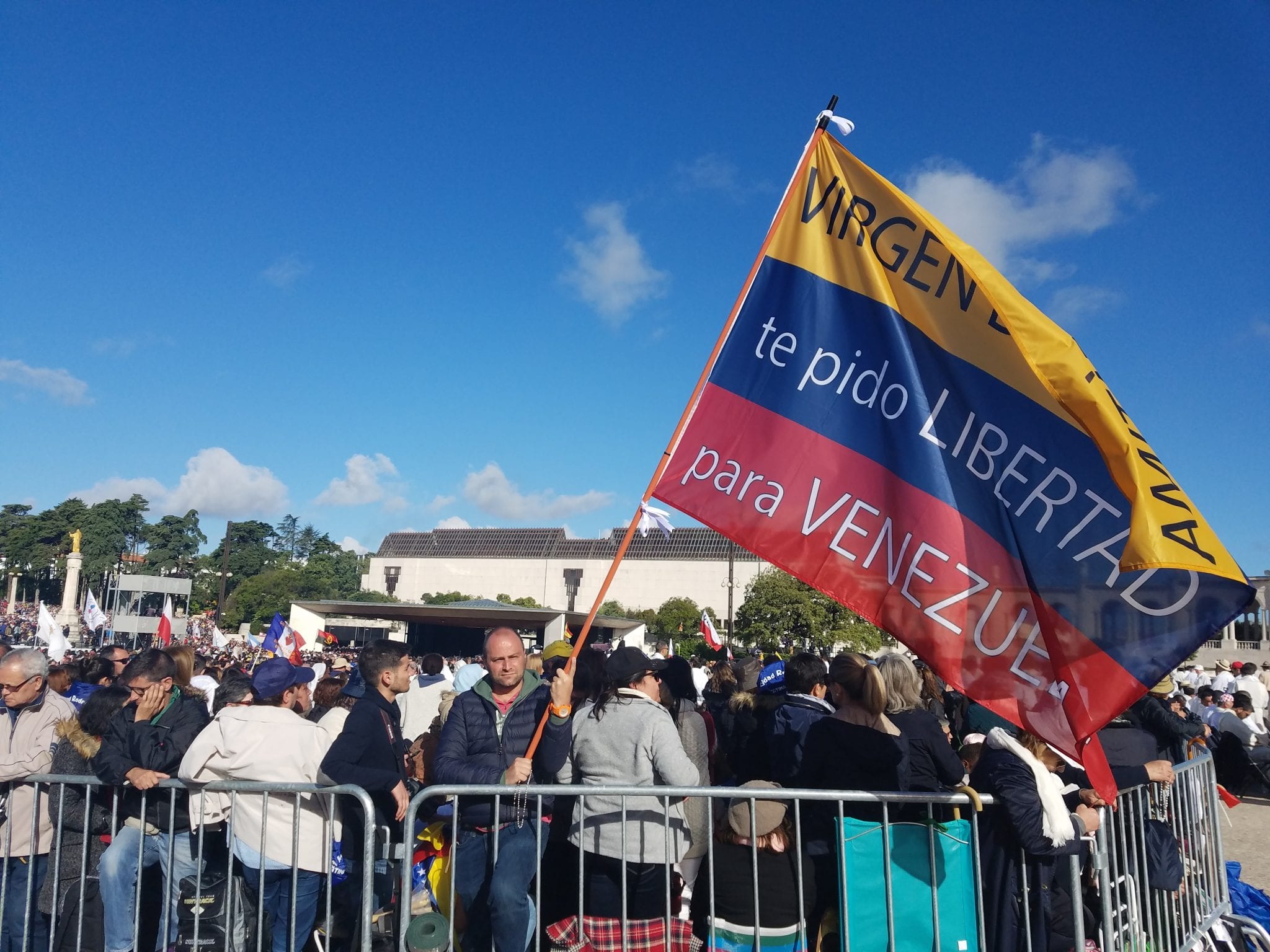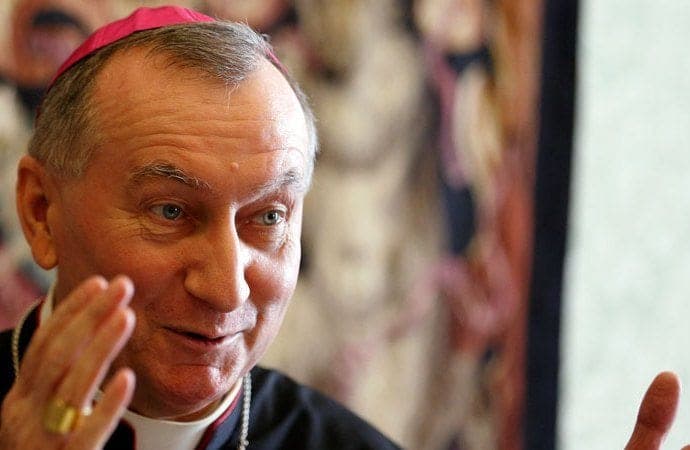FATIMA, Portugal – From the beginning of the current crisis in Venezuela, the Vatican has been an active player. That engagement continued on Saturday even as Pope Francis was visiting the Marian shrine of Fatima in Portugal, where his right-hand man insisted that the only exit strategy for the Latin American nation are new elections.
Speaking minutes before a Mass began during the papal trip, Italian Cardinal Pietro Parolin, the Vatican’s Secretary of State, answered a question posed to him by Crux and the Argentine paper La Nación.
“I believe that the pope is calling everyone to be sensible, and to do everything possible to look for paths of understanding and a solution [to] the crisis,” said Parolin, who was the papal ambassador in Venezuela before being named by Francis to his present role.
“This is the pope’s call, and it’s addressed to everyone,” he continued. “A lot of good will from everyone is needed, beginning with the government.”
According to Parolin, Venezuela’s government, led by Nicolás Maduro, who succeeded socialist Hugo Chavez, “must give signals of wanting to solve [the crisis] and take under consideration the clamor of the people, look for solutions.
“I believe that elections are the solution,” Parolin said flatly.
It marks the first time the Vatican has directly called for elections in Venezuela, which could imply a transition away from Maduro’s rule. Polls show plummeting support for Maduro’s party, and electoral officials in the country, reportedly at the direction of the executive branch, have repeatedly delayed or cancelled planned elections.
Last week, Luis Almagro, who heads the Organization of American States, said that Venezuela must hold general elections immediately, and if it doesn’t, member states — including Canada — should suspend Venezuela from the Washington-based regional body.
In a column published Tuesday in the Bogota, Colombia, newspaper El Tiempo, Almagro declared: “Today… there is a dictatorship” in Venezuela.
Officials loyal to Maduro, however, say that elections are not a priority right now because they are dealing with more urgent challenges, such as chronic food shortages and soaring inflation they describe as part of an “economic war” by the opposition.
The question posed to Parolin was inspired by a Venezuelan flag that stood out in the first row at Saturday’s Mass. Lifted high by José Antonio dos Santos, a native from the Latin American country who fled some ten years ago, when the crisis became unsustainable. Since then, he’s been living in Barcelona.

“Virgencita of Fatima, I ask you for FREEDOM for VENEZUELA,” reads the flag, lifted with a mix of pride, hope and despair.
Questioned by Crux about what he was praying for during this pilgrimage, dos Santos said he’d asked for the Virgin to grant his country what she’d promised for Portugal: “Peace and freedom.”
Pope Francis is currently in Portugal to mark the 100th anniversary of the appearance of Our Lady of Fatima to three young, illiterate shepherds. Back in 1917, she promised an end to war and peace if the country prayed daily for this intention.
Dos Santos, who came with a large group, had only one of the many Venezuelan flags visible among the crowd, that reached an estimated half million people.
Many have questioned Pope Francis’s stance so far, always calling for dialogue between the government and the opposition. Lilian Tintori, one of the heads of the opposition and the wife of Leopoldo López, a long-time prisoner of the Maduro regime, said on Thursday that the pontiff’s position was “unacceptable.”
Instead, Tintori and other critics would like see the pontiff denounce Maduro, denying legitimacy to his government.
Tintori, who’s been to the Vatican many times, and who’s met with Francis on one occasion, also said that she’d like to “see the Vatican defending human rights.”
The Catholic bishops of Venezuela are also a strong voice against the government of Maduro, which has led to an increase of attacks against churches, bishops and priests in the past months, with Masses being interrupted by militants in favor of the government.
Earlier in the month, when the government announced a constitutional reform was in the works, the bishops released a statement opposing the measure.
The bishops called upon Venezuelans to pray and to “raise their voice of protest” without taking part in violence.
Citing the government’s “repressive nature through the suffocation of legitimate protest with excessive and inhuman violence,” the bishops said that they cannot ignore “the sadness and suffering that this regime is provoking in our people.”
During the short-lived talks between the government and the opposition last year, the Vatican took part, but remained neutral in the hopes of brokering a deal between both sides. The talks quickly went nowhere after Maduro failed to release political prisoners and to respect basic democratic norms that were part of the negotiations’ conditions.
In a May 5 letter to the local bishops, penned in response to violent riots that have killed at least 50 people, Francis urged them to continue promoting a culture of encounter.
“I am persuaded that Venezuela’s serious problems can be solved if there is the desire to establish bridges, to dialogue seriously and to comply with the agreements that were reached,” the pontiff said.
Riots have spiked in Venezuela in recent weeks, resulting from unemployment, food and medicine shortages, and Maduro’s authoritarian policies.














